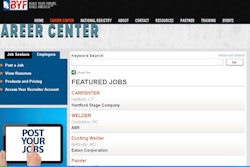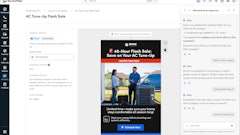
Our previous article spoke about effective interviewing techniques. The focus was on the process of conducting an interview to help identify LUZIRS (Lazy, Undisciplined, Zero-interest, Irresponsible, Rude, Slackers) so you could avoid hiring one. Although that article talked briefly about prohibited inquiries and using open-ended questions, here are some more examples.
What you can’t ask
Most employers are probably already aware that they should not ask questions that relate to race, color, creed, national origin, sex, or religion. Various laws prohibit the use of other criteria in making employment-related decisions, so you should not ask about those criteria. These include inquiries about age, arrests, convictions (unless clearly related to the job sought), credit rating, disabilities, marital/family status, military service, national origin, height or weight (unless clearly job-related), or union membership. Let’s look at some of these topics in a little more detail.
Some questions to avoid are obvious: “How old are you?" You should also not ask when someone graduated from high school or college or their date of birth.
Similarly, you should not ask whether an applicant has a handicap or disability. The more subtle probing is also prohibited. For example, you should not ask if the applicant has ever been hospitalized or treated for any condition; nor should you ask if the candidate has ever been treated for a mental condition or seen by a psychiatrist or psychologist. You should not ask how many days were missed because of illness, but it is lawful to describe your attendance requirements and ask if the applicant can meet them. Even though the work is often physically demanding, contractors should avoid inquiries about specific medical conditions or ability to do specific tasks. You should not ask if the applicant is taking prescribed medication or has been treated for drug addiction or alcoholism.
There are a number of questions that may reveal information about an applicant's national origin, and these should be avoided. For example, obvious questions about citizenship, country of birth, ancestry or descent should not be asked. But, you should also avoid the more subtle forms of inquiry like: "What languages do you speak?" or "Have you ever served in the armed forces of another country?"
What you should ask
If you know and understand the criteria that you cannot base your decision upon, then it is easier to know what questions you really do not want to ask the applicant. Knowing there are a lot of topics we need to avoid in the interview process, let us turn to the kinds of questions that you really do want to ask an applicant.
Remember the goal is to get the applicant to explain things. For example, ask the applicant to describe his or her current or prior duties. Then, ask which duties the applicant liked least or most, and why. You should always ask why the applicant wants to leave current employment. In many cases, this discussion reveals victim-like characteristics that suggest the applicant does not get along well with others, may have issues with customers, or worse, may resent authority and/or supervision. A similar inquiry asks the applicant what he or she would have most wanted to change about his or her current or last job and why.
It is also useful to ask questions that are open-ended but framed in a particular context. For example, "How would you handle a customer/co-worker/vendor/caller who is irate and obnoxious?" You can also direct your inquiry at particular circumstances or issues. For example, "What would you do if you think it is too hot to work outside?" or "What would you do if you think there is too much ice on the ground?" You can probe to see how the applicant will respond to adversity. "How would you handle a situation where you believe a co-worker or supervisor is not telling the truth?"
For some positions, you really are interested in long-term behavior. Here, you may wish to ask where the applicant sees himself/herself in three, five or 10 years. Another example is "What do you bring to the table that will benefit the company over the long-term?" Even a simple question like “Why is hiring you in the best interest of my company?” will tell you a lot about the applicant.
By getting the applicant to talk and listening carefully to what the applicant says, you will get a much better feel for whether this person is a good fit for your company or truly one of the LUZIRS.



















